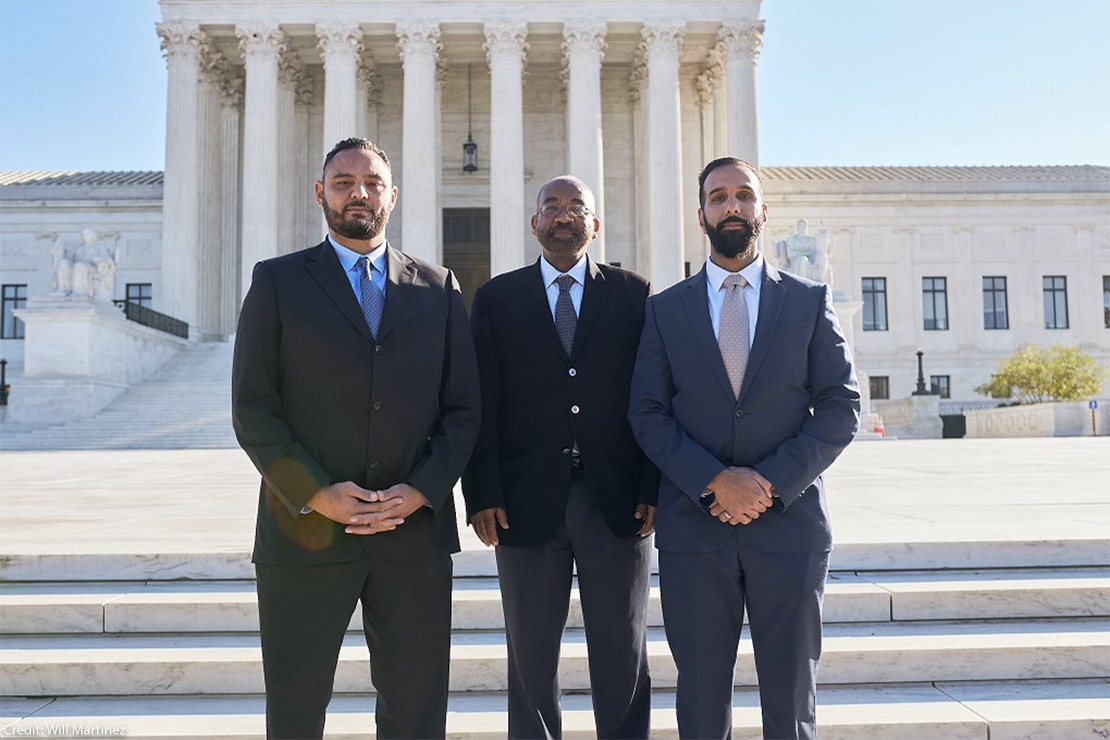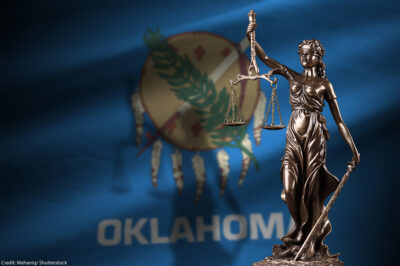Muslim Americans File Supreme Court Brief Challenging Religious Discrimination in FBI v. Fazaga
At Stake is Whether the U.S. Government can Escape Accountability for Secretly Spying on Americans Due to Their Religious Beliefs
LOS ANGELES — In a brief filed this week in the U.S. Supreme Court, the Muslim American plaintiffs in FBI v. Fazaga argue that the FBI must face claims that it secretly spied on their communities in Southern California based on their faith — violating the Constitution and federal law. In what will likely be a landmark case, the plaintiffs insist that the FBI cannot escape accountability for violating their religious freedom by invoking “state secrets.” The brief was filed by the American Civil Liberties Union, the ACLU of Southern California, the Center for Immigration Law and Policy at UCLA School of Law, the Council for American Islamic Relations, and the law firm of Hadsell Stormer Renick & Dai.
The case stems from an FBI operation in 2006 and 2007 in which agents sent a paid informant to some of the largest, most diverse mosques in Orange County, California and instructed him to pose as a convert to Islam. The FBI informant indiscriminately gathered names, telephone numbers, and email addresses, as well as information on the religious and political beliefs of hundreds of Muslim Americans who were exercising their constitutional right to religious freedom. Community members became increasingly concerned about the informant’s behavior, and ultimately reported him to the FBI.
“As the Imam of the Orange County Islamic Foundation, I worked diligently to establish trust between my community and the U.S. government after the horrifying attacks of September 11 more than 20 years ago. I invited the FBI to speak with the members of my Mosque. They looked us all in the eyes and assured us unequivocally that they were not spying on us. We trusted them. But they lied, and our sacred community was shaken to its core,” said Sheik Yassir Fazaga, a religious leader and one of the plaintiffs in the lawsuit. “I hope and pray the Supreme Court will allow us to hold them accountable for treating people who practice Islam as second-class citizens.”
After the plaintiffs — Sheik Fazaga and two congregants — filed suit, the district court held that it could not consider claims that the FBI unlawfully targeted Muslim community members for surveillance because the FBI argued that further proceedings could disclose “state secrets.” The court of appeals disagreed, instructing the district court to consider the plaintiffs’ religious discrimination and surveillance claims under procedures mandated by Congress in the Foreign Intelligence Surveillance Act (FISA), which specifies how courts should handle sensitive evidence in cases involving surveillance conducted for national security purposes.
The government appealed from this ruling, arguing that its invocation of the state secrets privilege barred the plaintiffs’ religious discrimination claims, and the Supreme Court agreed to hear the case.
“When the government spies on Americans because of their religion, it must be held to account,” said Patrick Toomey, senior staff attorney with the ACLU’s National Security Project. “The FBI’s claims of secrecy are no answer to the discriminatory and harmful surveillance that these Muslim American communities experienced. Congress made clear decades ago that people challenging abusive spying should have their day in court. The Supreme Court must honor these protections and allow the plaintiffs’ religious freedom claims to go forward.”
The Supreme Court will hear arguments in FBI v. Fazaga on Nov. 8, 2021. The case will be argued by Ahilan Arulanantham, professor from practice and co-director of the Center for Immigration Law and Policy at UCLA School of Law and former senior counsel at the ACLU of Southern California.
Stay Informed
Sign up to be the first to hear about how to take action.



